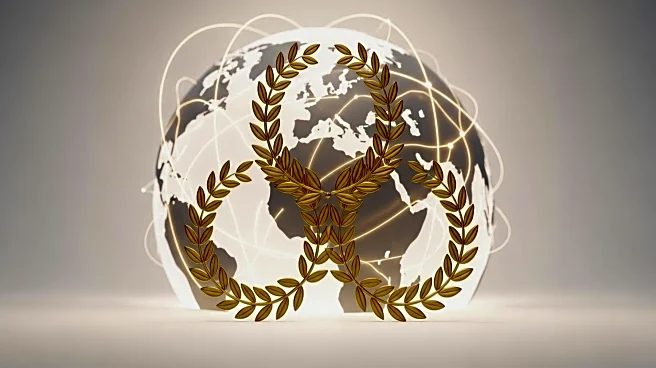What's Happening?
In eastern China, a summit featuring leaders Xi Jinping, Vladimir Putin, and Narendra Modi has taken place, signaling unity among major powers not aligned with the West. The leaders were seen engaging warmly, with Modi and Putin holding hands and exchanging pleasantries with Xi. This display of camaraderie is intended to convey a message of solidarity among these nations, which are positioned as alternatives to the U.S.-led world order. The summit highlights the strategic alliances forming between China, Russia, and India, despite existing geopolitical tensions.
Why It's Important?
The summit underscores the shifting dynamics in global geopolitics, as China, Russia, and India seek to strengthen their ties and present a united front against Western influence. This gathering may impact international relations, as it highlights the potential for new alliances that challenge the existing global order. The display of unity among these leaders could influence diplomatic strategies and economic policies, particularly in response to U.S. actions such as tariffs and trade restrictions.
What's Next?
The summit may prompt reactions from Western governments, particularly the United States, as they assess the implications of this emerging alliance. Observers will be watching for any agreements or statements that could signal shifts in international relations. The event may also influence regional security dynamics, as the collaboration between China, Russia, and India could impact territorial disputes and military posturing.
Beyond the Headlines
The summit reflects broader strategic efforts by China, Russia, and India to assert their roles as global powers and challenge Western-centric narratives. By showcasing their unity, these nations seek to reshape global perceptions and promote their interests on the international stage. This event also raises ethical questions about the alliances formed between countries with differing governance practices, highlighting the complex interplay between diplomacy and human rights.









